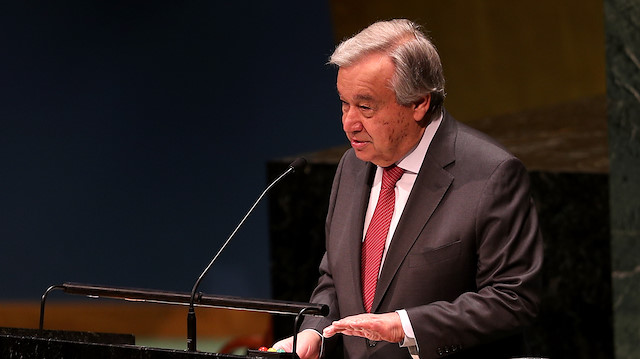
Despite scientific, technological advances of recent decades, microscopic virus bring world to its knees, says UN chief
The secretary-general of the UN said on Monday that the world had shown limited solidarity, yet very little unity in facing the novel coronavirus.
Antonio Guterres was speaking at the opening of the first virtual World Health Assembly, the decision-making body of the World Health Organization (WHO) held over two days with a focus on the coronavirus.
"Despite the enormous scientific and technological advances of recent decades, a microscopic virus has brought us to our knees," said Guterres via video-link from New York to the WHO.
"We do not yet know how to eradicate, treat or vaccinate against COVID-19. We have no idea when we will be able to do these things," he said.
He also noted that the fragility exposed by the virus was not limited to healthcare systems, but affected all areas of the world and their institutions.
Debate at the 73rd WHA meeting is expected to focus on finding an "emergency vaccine and drug production" for COVID-19, along with equitable global access and distribution of such a vaccine.
Representatives from the 194 countries that are members of WHO, are participating in the shortest-ever WHA, which usually lasts at least a week.
Australia said Monday that 116 nations in the 194-member World Health Organization (WHO) had supported its motion for an "evaluation" of the COVID-19 pandemic.
"Initiate, at the earliest appropriate moment, and in consultation with Member States, stepwise process of impartial, independent and comprehensive evaluation, including using existing mechanisms, as appropriate, to review experience gained and lessons learned from the WHO-coordinated international health response to COVID-19," says the motion submitted to the WHA.
Opening the assembly, Switzerland's President Simonetta Sommaruga said: "In the past, the WHO has been able to learn lessons from epidemics which the organization has had to deal with,
Hello, the comments you share on our site are a valuable resource for other users. Please respect other users and different opinions. Do not use rude, offensive, derogatory, or discriminatory language.
The floor is all yours.








